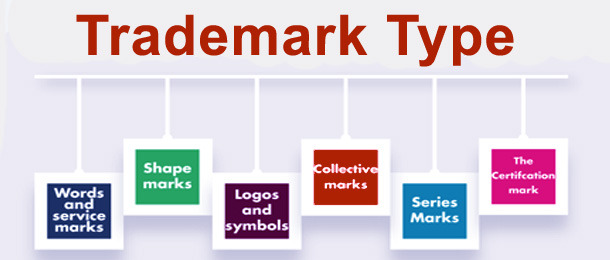Building a brand takes a lot of time, effort and capital. As a result, it's necessary to make sure that you possess the rights to use your brand's logo, tagline, product shape and packaging, sound, fragrance, color combinations, and anything else that gives it a distinct identity. Trademark is a type of intellectual property which differentiates your product or services from other competitors in the market.
In India, the Trademark Act,1999 permits you to register a trademark. It allows for exclusive ownership rights and prohibits others from using the mark, favoring the registered mark's owner.
Once a trademark is registered, the "TM" symbol can be used with the applicant and the brand. To protect the brand name, trademark registration in India is essential. It is typically best to seek trademark registration under the supervision of a professional, as the process entails several steps and needs constant government follow-up.

Product marks, service marks, collective marks, certification marks, shape marks, sound marks, and pattern marks are all forms of trademarks that can be registered. Despite the fact that there are various trademarks, their objective is the same: to allow consumers to identify goods and services produced by certain manufacturers or service providers. Let's look at the different types of trademark registrations available in India.
Product Mark:
Service Mark:
Collective Mark:
Certification Mark:
Shape Mark:
Pattern Mark:
Sound Mark:
There are numerous reasons to register a trademark, but the majority of them are required for all businesses and ambitious entrepreneurs because it serves as a valuable asset. Obtaining a trademark registration and utilizing the services has numerous advantages. Here are a few benefits.
Intellectual Property Protection: The legal protection provided by trademark registration is against the misuse or copying of the company's name or registered logo. The trademark owner acquires legal ownership of the trademark, which can be enforced in any court. When a trademark is registered, the owner gains nationwide possession of the mark.
Legal Remedies: The owner of a trademark can recover up to triple damages from the offender if the trademark is registered in India. The owner is presumed to be the rightful owner of the trademark. When a trademark is registered, the owner gains the ability to sue anyone who is misusing the mark in any court. Unregistered trademarks, on the other hand, are subject to legal action. .
Powerful Deterrent:A trademark owner obtains the ability to publicly display his or her brand as a registered trademark, alerting others and eliminating the defence of innocent infringement. Once a trademark is registered, it will appear in search reports, preventing other applicants from pursuing the registration of the same or similar mark. .

Trademark registrations are prevalently used to protect unique brands, slogans, or invented terms. Individuals, corporations, and non-profit organization can all file for trademark registration in India. However, each class of person or entity has its own set of requirements when it comes to filing a trademark application. In India, the following are eligible for trademark registration.
An individual (Person)
Proprietorship Firm
Partnership Firm
Limited Liability Partnership/LLP
Trust or Society
The trademark registration application can be filed with the Trademark Registrar after the trademark search is completed. However, the application must be made in the prescribed manner and preceded by the applicable fees. The application can be made online or at any of the state's five Trademark Registrar's offices. To register a trademark online, go to the IndiaFilings website.
Logo or the Trademark
Trademark used Since the date
Name and address of the Trademark owner
Description of the goods or services
| Aadhaar card |
| PAN Card |
| MSME Certificate |
| Address proof |
| Form-48 Signed |
| Logo |
1. Who needs Trademark registration?
Any word, name, device, label, numerals, or a combination of colors that can be represented graphically can be registered as a trademark. The trademark to be registered must also be distinctive for the services or goods for which it is proposed to be registered.
2. Which Trademarks cannot be registered?
Any mark which is identical or similar to an existing registered trademark or any trademark for which an application has been made, cannot be registered. Also, marks that would likely cause deception or confusion or are offensive in any way may not be registered. Geographical names, common names, common trade words and common abbreviation can also not be registered as a trademark.
3. What is Trademark Class?
To standardize the goods or services which the trademark will represent, the trademark registry has a list of 45 Classes under which all types of goods and services are represented. The trademark application must mention the type of goods or services the trademark will represent under one or more of the classes. Trademark registration is granted for that specific class of goods or service.
4. Is my trademark application valid across the world?
No, any trademark registered in India will be valid only in India. However, some countries use the trademark filing in India as a basis for registering the trademark in their country.
5. How long it takes to obtain Trademark registration?
Trademark application can be filed with the trademark registry in a matter of 1 - 3 days. However, it will typically take 6 to 24 months for the registry to complete their formalities and provide registration for the trademark.